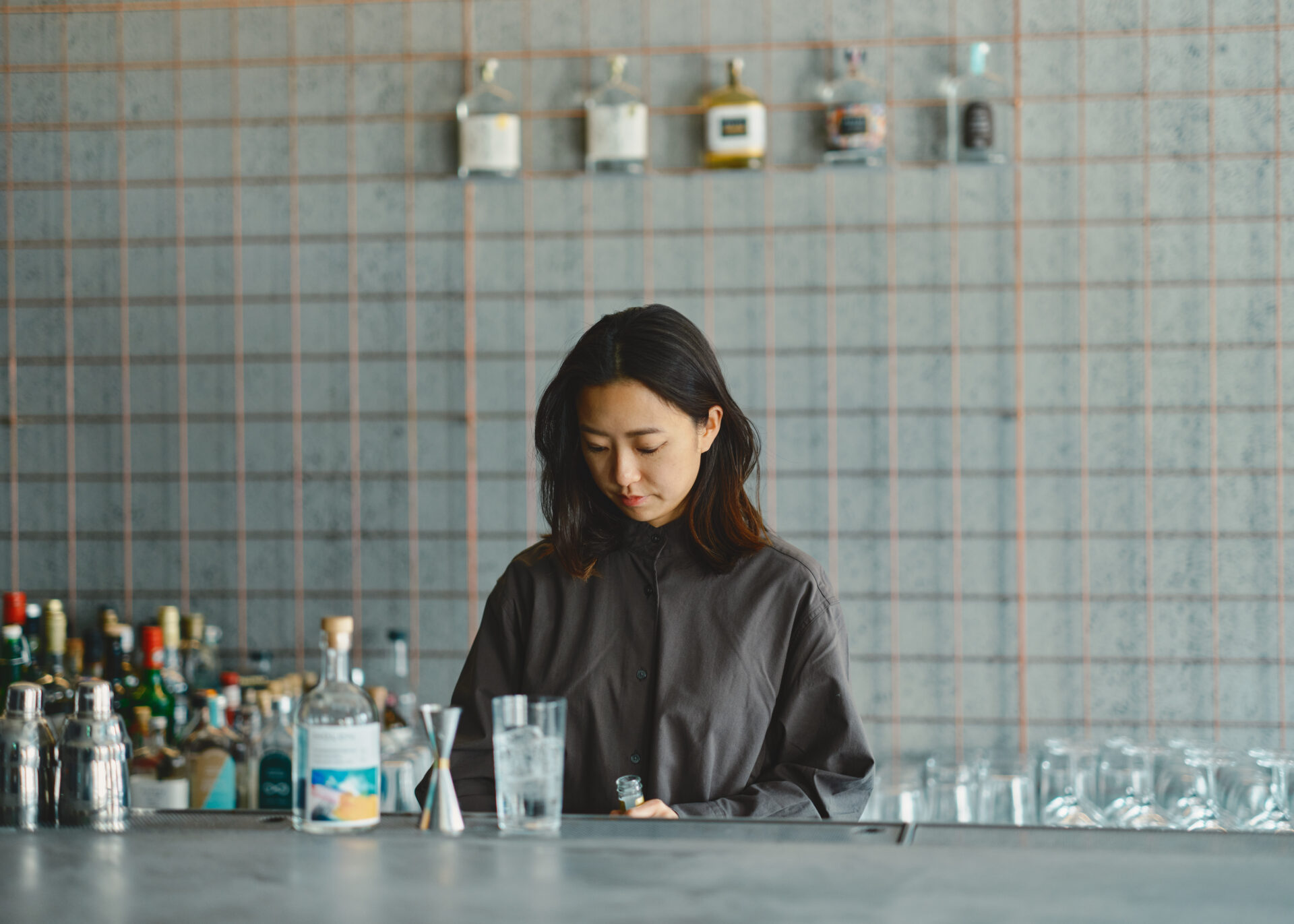The sound of a clear, colorless gin gently pouring into a glass echoes quietly through the room.
The moment the glass is brought up to your nose, you realize that it is very different from other conventional drinks.
Holon is a craft gin maker and their concept is based on turning drinking gin into a meditation like experience.
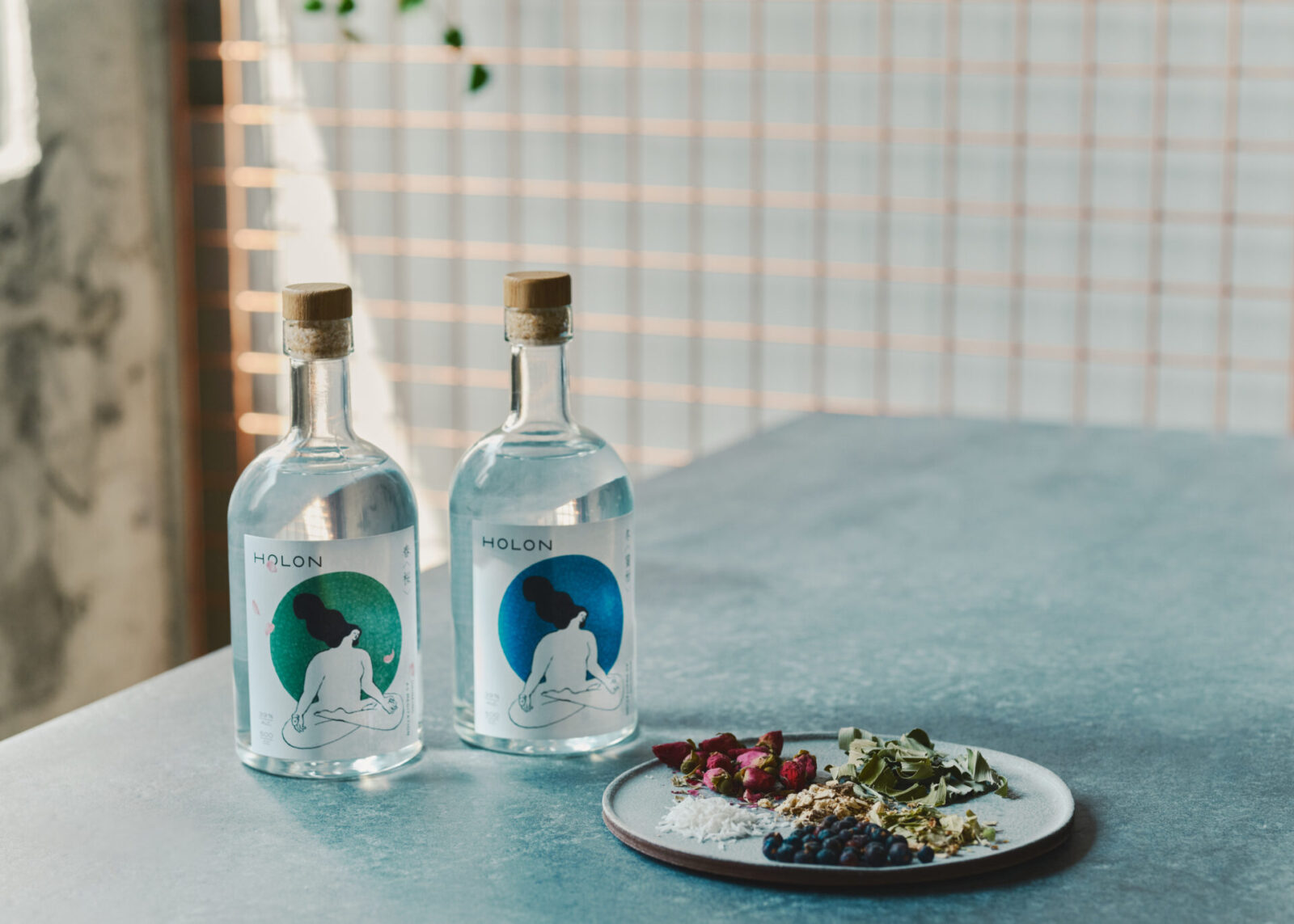
Their products deliver a moment for the mind and body to find harmony with the soft fragrances of western and oriental herbs and spices.
In our busy world, what kind of moments do they aim to provide through their craft gin? We spoke with Rei Horie, the producer of Holon, on enjoying alcoholic drinks as a “shikohin” to explore her inner self, and the history behind the development of their products.
The secrets of “drinkable perfume”
Gin is a distilled drink that is made with base ingredients such as barley, rye, and potatoes. Additional ingredients such as spices, herbs, medicinal plants are also added before it is distilled again. It is said to have originated in the Netherlands as a medicinal drink known as “Jenever” and it was used to relieve fevers or as a diuretic agent. Although it was a medicinal drink, many people enjoyed the flavor so it evolved into the more refined dry gin.
Holon is made from 12 different plants including healthy spices, herbs and citrus peels. The production is supervised by Sayoko Tsukamoto, an internationally certified Chinese herbalist.
Gin is often said to be “a perfume you can drink,” and Horie is especially particular about their fragrance.
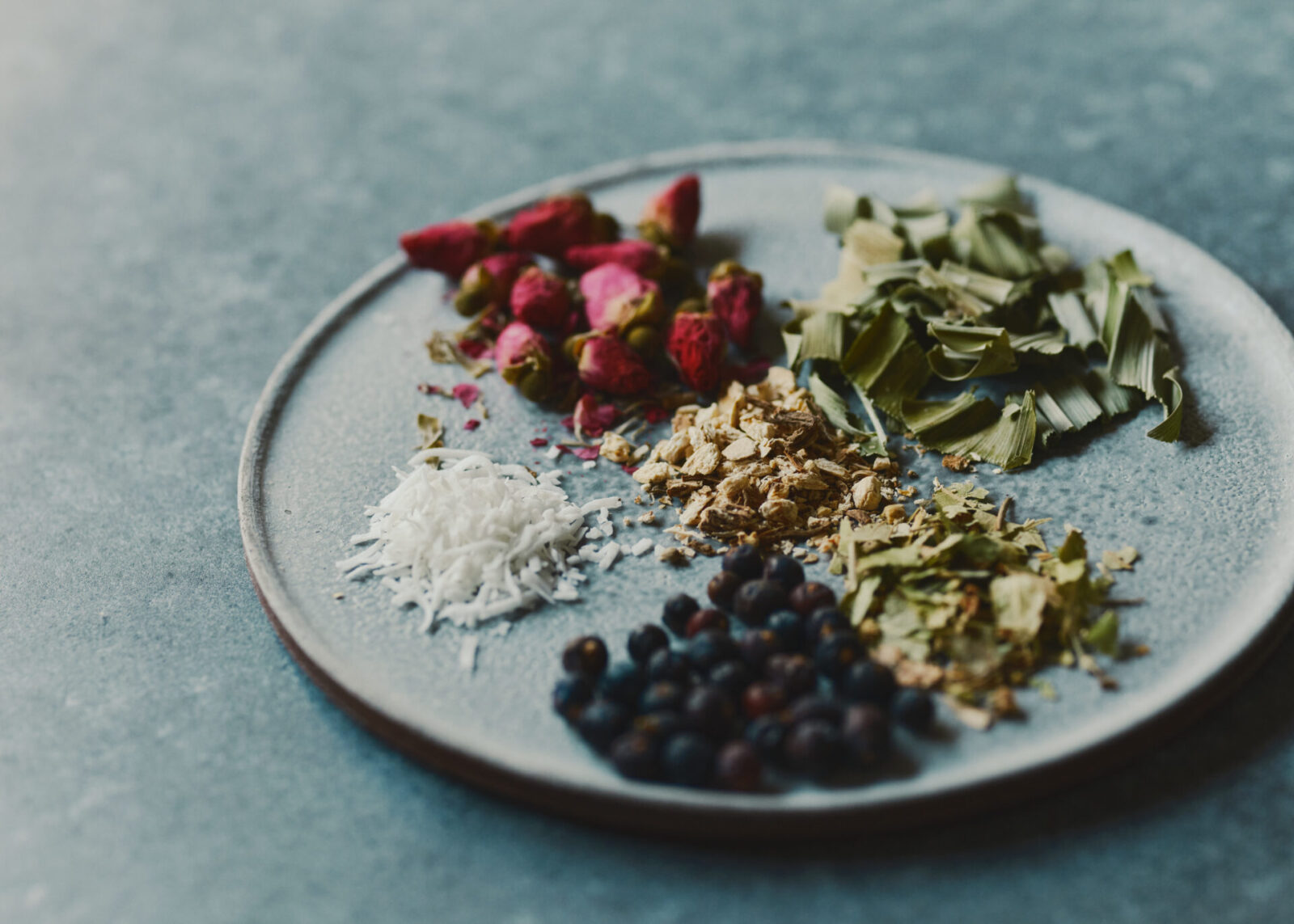
We opened a bottle of the Holon Gin Original.
The sweet oriental fragrance of cinnamon, pandan leaf, which is also known as the “vanilla plant of the East,” and Japanese rose, help induce relaxation. On top of that, there is a hint of rosemary and a scent of maqaw, which is similar to Japanese pepper.
The harmony created by these various plants gives birth to a delicate fragrance which relaxes your mind and releases tension in your body. A sense of peace and tranquility arises.
“Gin really lets you have a lot of freedom in formulating with different botanical ingredients. With our Holon products, we blend fragrances for relaxation and quieting the mind, rather than scents that will stimulate excitement.”
The flavor itself is also incredibly delicious. There is an exquisite sweetness and freshness that spreads inside your mouth.
The ABV (alcohol by volume) is 35 percent, which is relatively low for a gin. It doesn’t have the heaviness that is characteristic to many alcoholic drinks, and it is more like a soft and light drink that makes you feel as if clear water is flowing through your body.
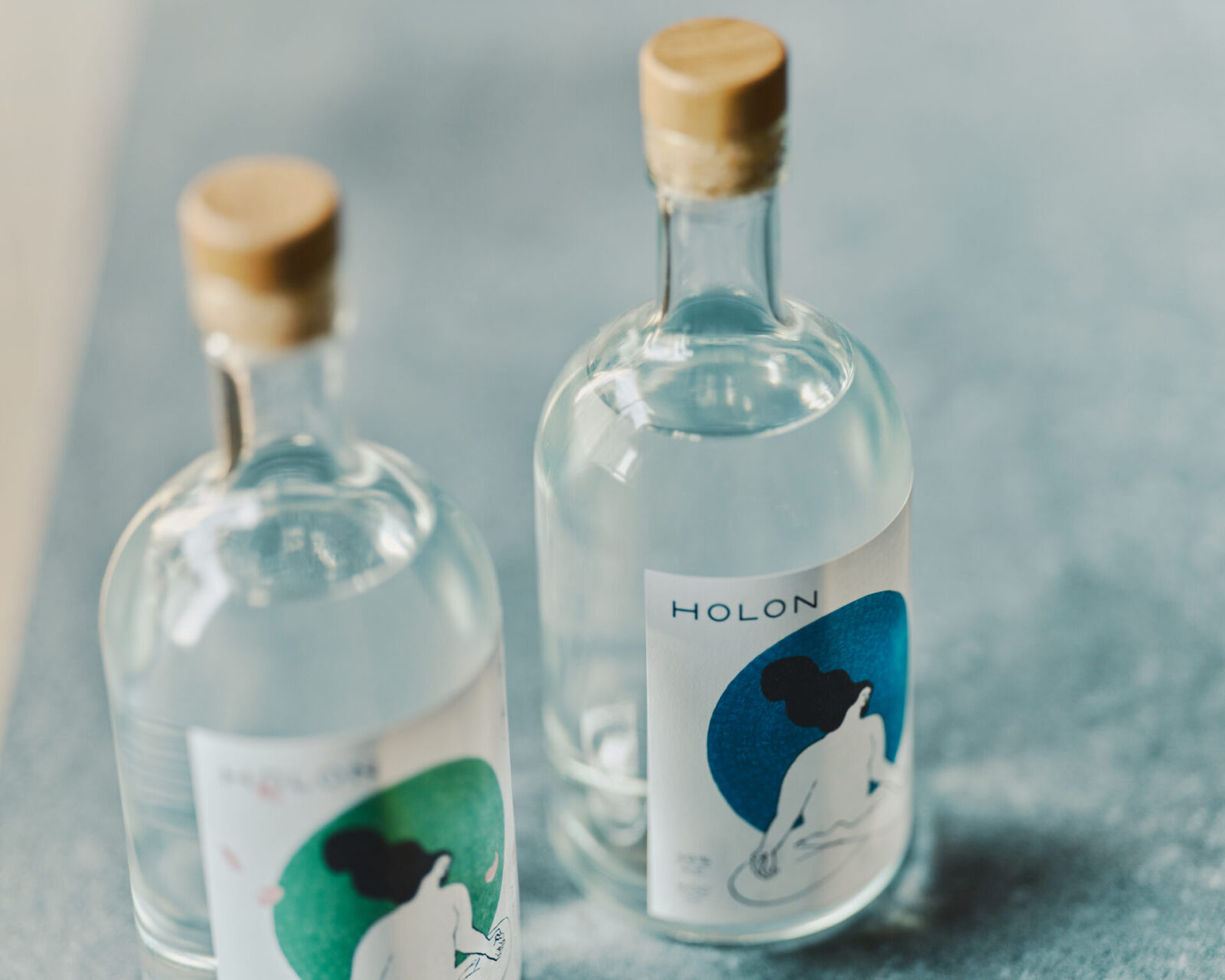
In addition to the Holon Original Gin, there is a series of seasonal gins that represents the flavors of the seasons.
Spring (Sakura), the latest flavor, is blended with cherry blossom leaves as the main ingredient, along with apricots, coconut, and tonka beans. When you take a sip, it leaves a subtle scent of sakura mochi (cherry blossom rice cakes) in your mouth and evokes memories of spring.
We asked Horie the best way to enjoy the drink. “First you should try it with soda or tonic water, which is a standard way to fully enjoy a gin’s natural fragrance,” Horie says.
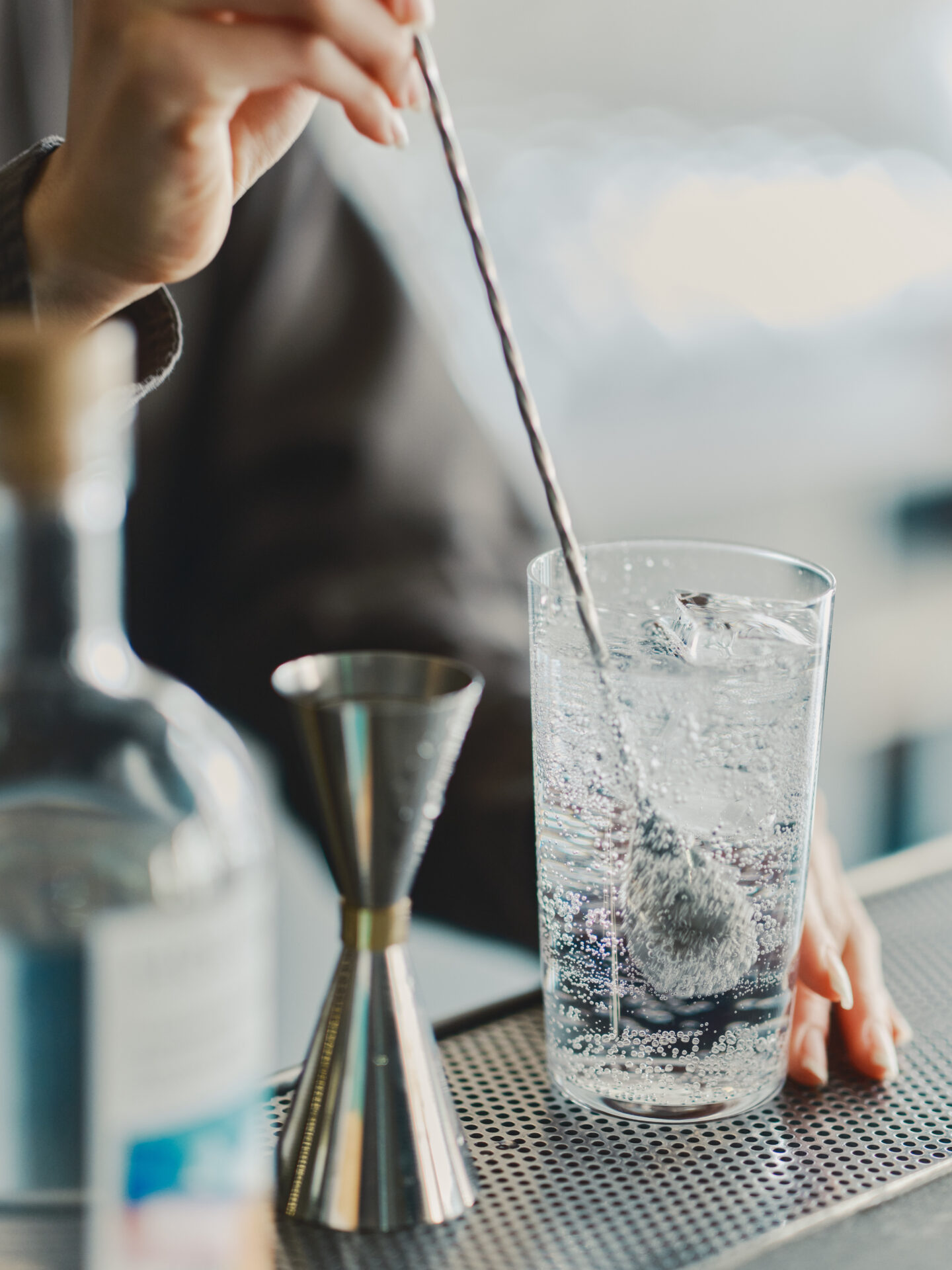
Next, she said she recommends mixing Holon with tea.
“Our Original Gin goes well with lighter toned teas such as jasmine, oolong and corn teas. For our seasonal series Spring, it pairs well with deeper and more refreshing teas such as sencha or green tea that have not been roasted or fermented.”

The ideal time to enjoy the drink is at the end of the day as your mind prepares for sleep. “I enjoy a drink after dinner or a bath when I want to take a moment and just relax,” Horie says.
“Fragrances stimulate your five senses so you can really focus on yourself. Your consciousness turns inwards. It is a time for self reflection. I think it provides a very interesting way to experience alcohol.”
A drink for self-reflection, not social gathering
The word Holon means “harmony of the whole and its parts” and is derived from the ancient Greek language. It expresses their desire to create a craft gin that helps bring harmony to the mind and body.
“Just like with society, family, community and our bodies, there are a lot of various functions, yet it also functions as one. This is the image we have behind our concept,” Horie says.
Besides the dedicated attention to the flavor and taste, another main feature of their products is that it is designed to create a drinking experience that fits with everyday lifestyle.
The idea arose from Horie’s personal experience of feeling discomfort at social drinking parties.
“Ever since college, I have never enjoyed drinking at social events with a lot of people. I can’t drink in large quantities, and I was very uncomfortable with the social pressures at large parties that sometimes make people drink down a whole glass of alcohol in one gulp. I always felt excluded by the idea that drinking parties are the equivalent to socialization and communication.”

It was during this time that she encountered gin for the first time.
In the winter of 2018, Horie had just graduated from university and started working in marketing at Google, and went to a bar called The Flying Circus in Shibuya, Tokyo, with a group of friends. The bar had a whole line up of gins and tonics from around the world. Horie says the drinking experience she had there was surprising and revelating.
“Choosing a gin and a tonic water to go with it was very much like choosing a perfume. It was the first time I truly had an enjoyable drinking experience with my whole being and I experienced a clear vision of alcoholic drinks.”
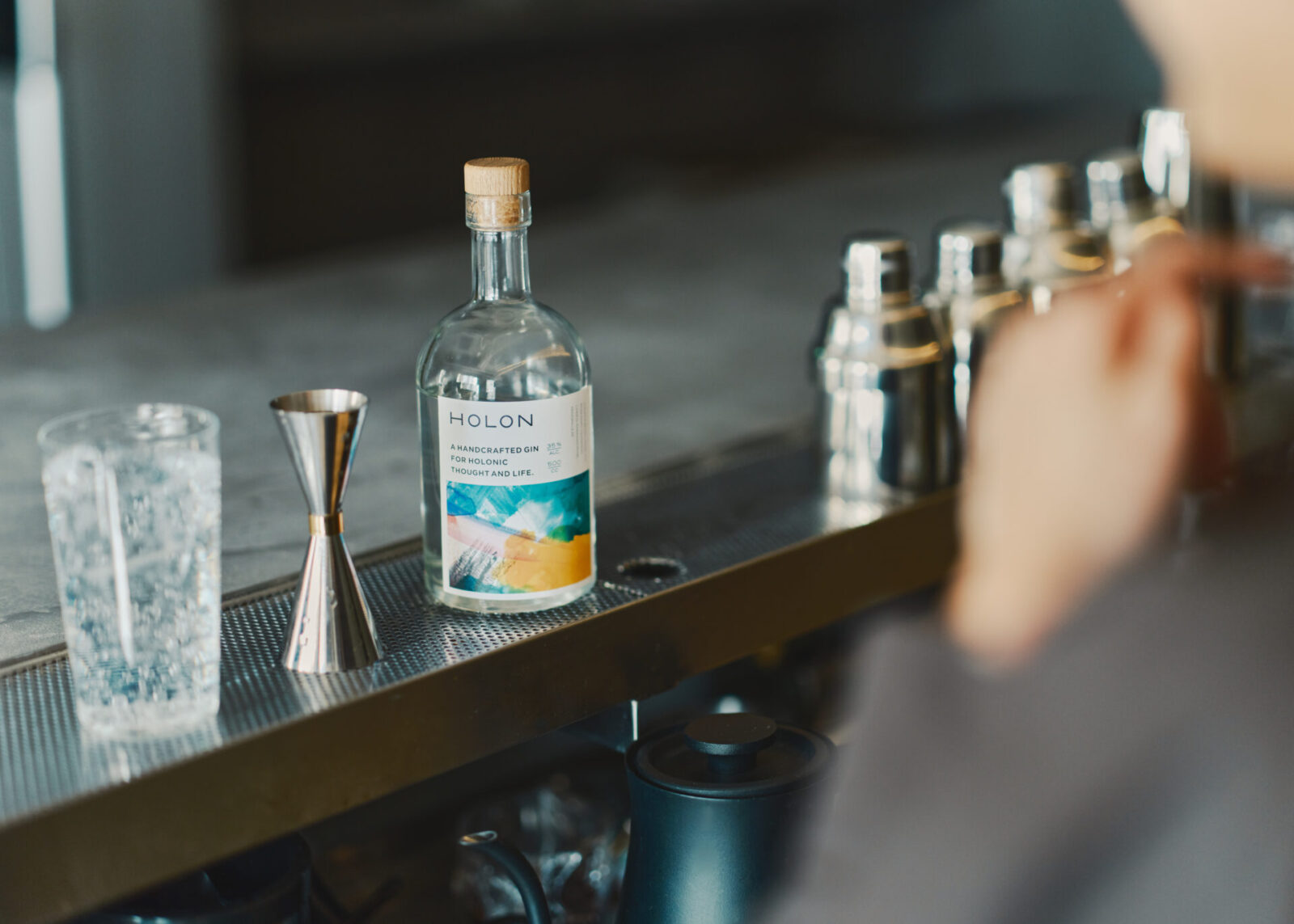
As opposed to the experience of a large, boisterous drinking party, this experience was one of self reflection and a feeling of inwardness. It was a feeling that could be similar to meditation and yoga.
From an image of extroversion to introversion, there was a major shift in the way she perceived alcohol.
“I really enjoy Buddhism, and I traveled to India, Nepal and Butan while I was in college. I always had a desire to express Buddhist concepts through my work.”
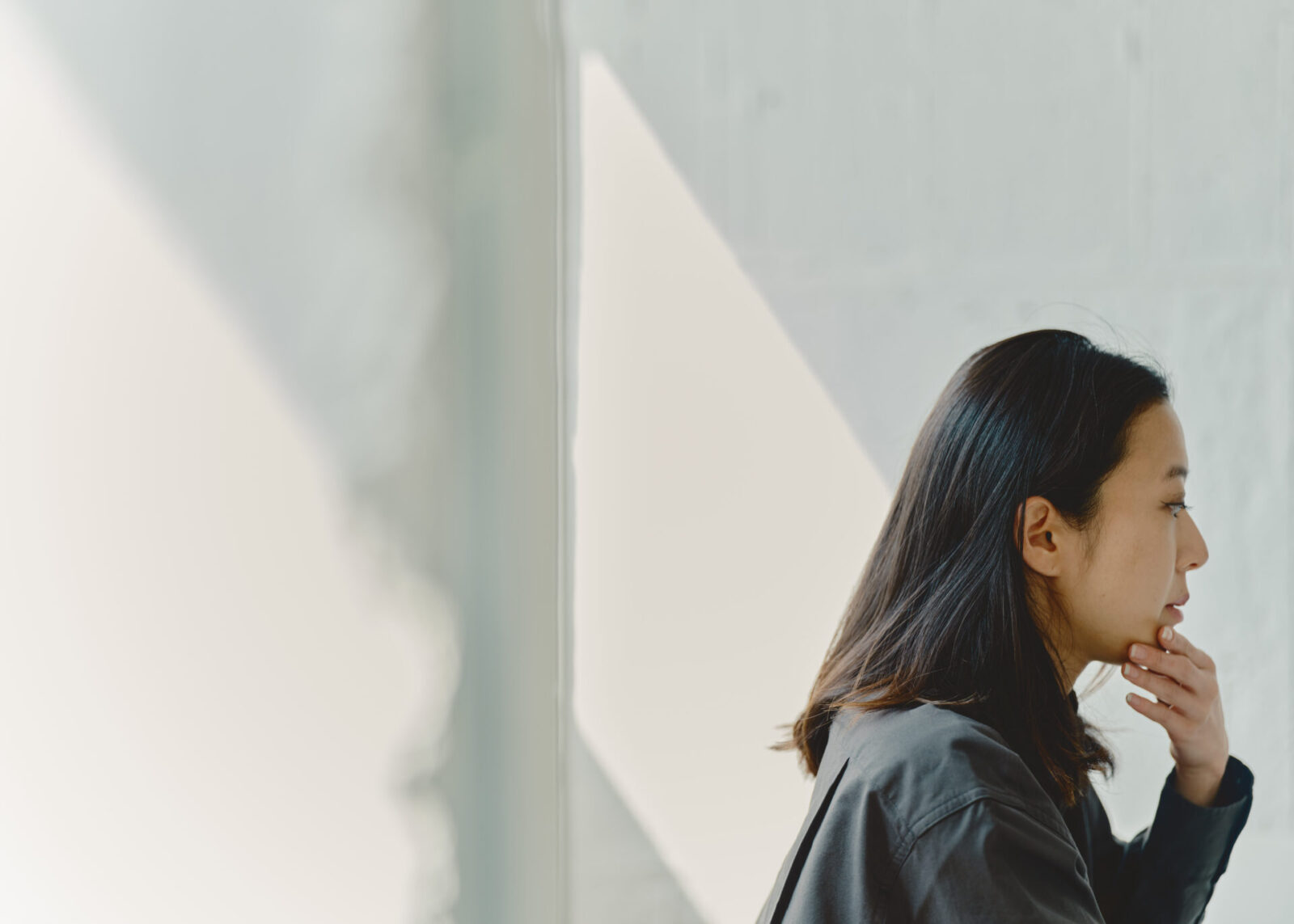
“There have been times when I struggled communicating with those who are close to me. I would be too direct with my feelings toward my family or partner, and I have experienced regret because of it. I even studied anger management because I could not control the anger I felt toward discriminatory remarks, even though it came from my sense of social justice.”
Buddhism helped Horie find a way to live with her internal struggles.
“It teaches us to look into our own actions and true nature in that moment and place. The idea is that this will help oneself and those around you. As time went on, I had the desire to express these Buddhist teachings through food.”
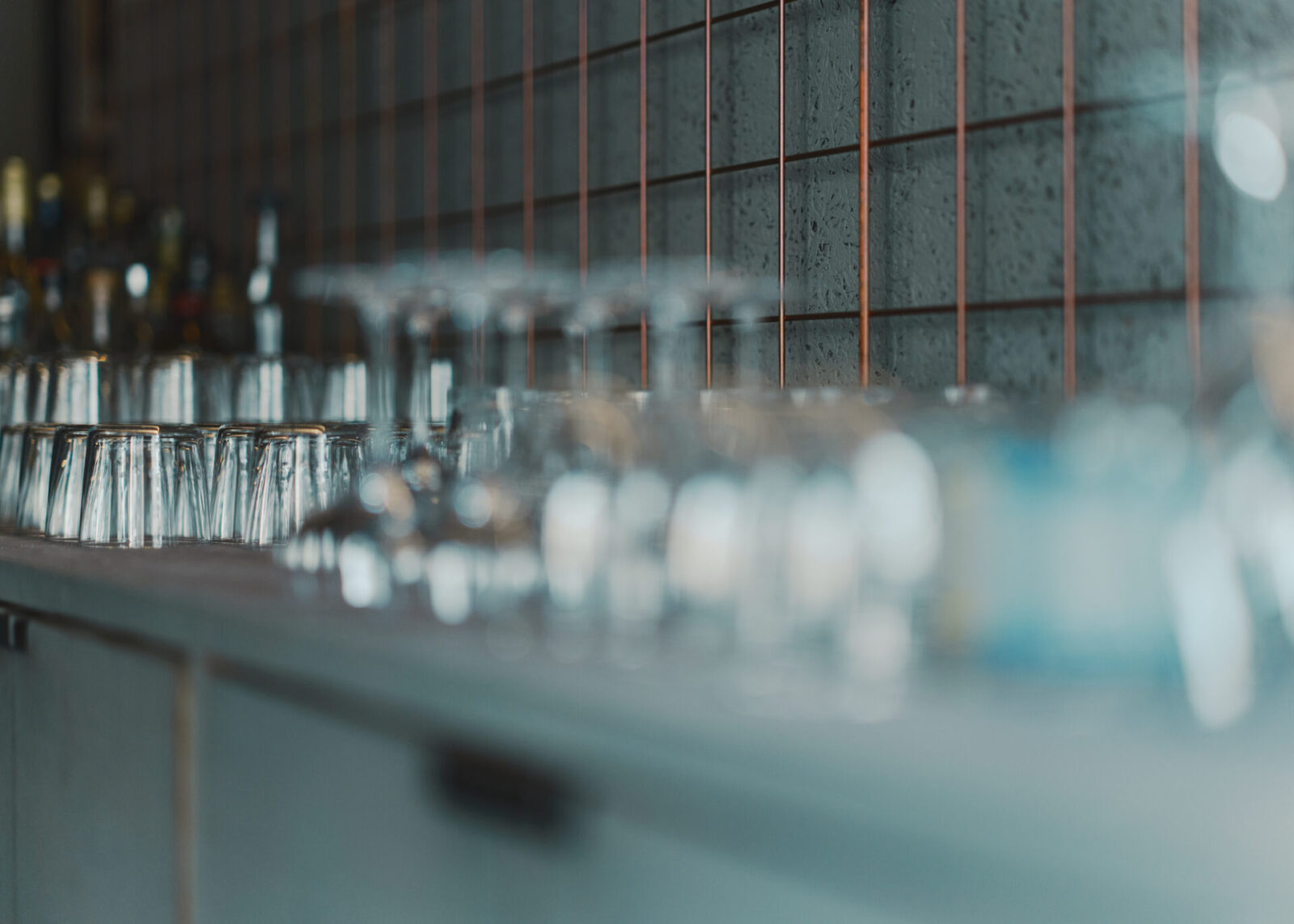
Drinking as a ritual, alcohol as a “shikohin”
Gin is colorless and transparent, but it is filled with invisible information such as the place of production and ingredients.
“I see craft gin as a type of medium. The regional characteristics are expressed in the ingredients, and the creator’s philosophy is expressed in the end product. Craft gin allows you to explore information about a world that is unknown to you. I think that is what makes it so interesting.”
Horie is interested in alcoholic drinks as a “shikohin” that allows the exploration of inner self. She told us about a book that she read recently.
The book is “Tastes of Paradise: A Social History of Spices, Stimulants, and Intoxicants” by Wolfgang Schivelbusch (published by Hosei University Press). The book looks at the history of “shikohin” in European countries through generational, religious and ideological perspectives.
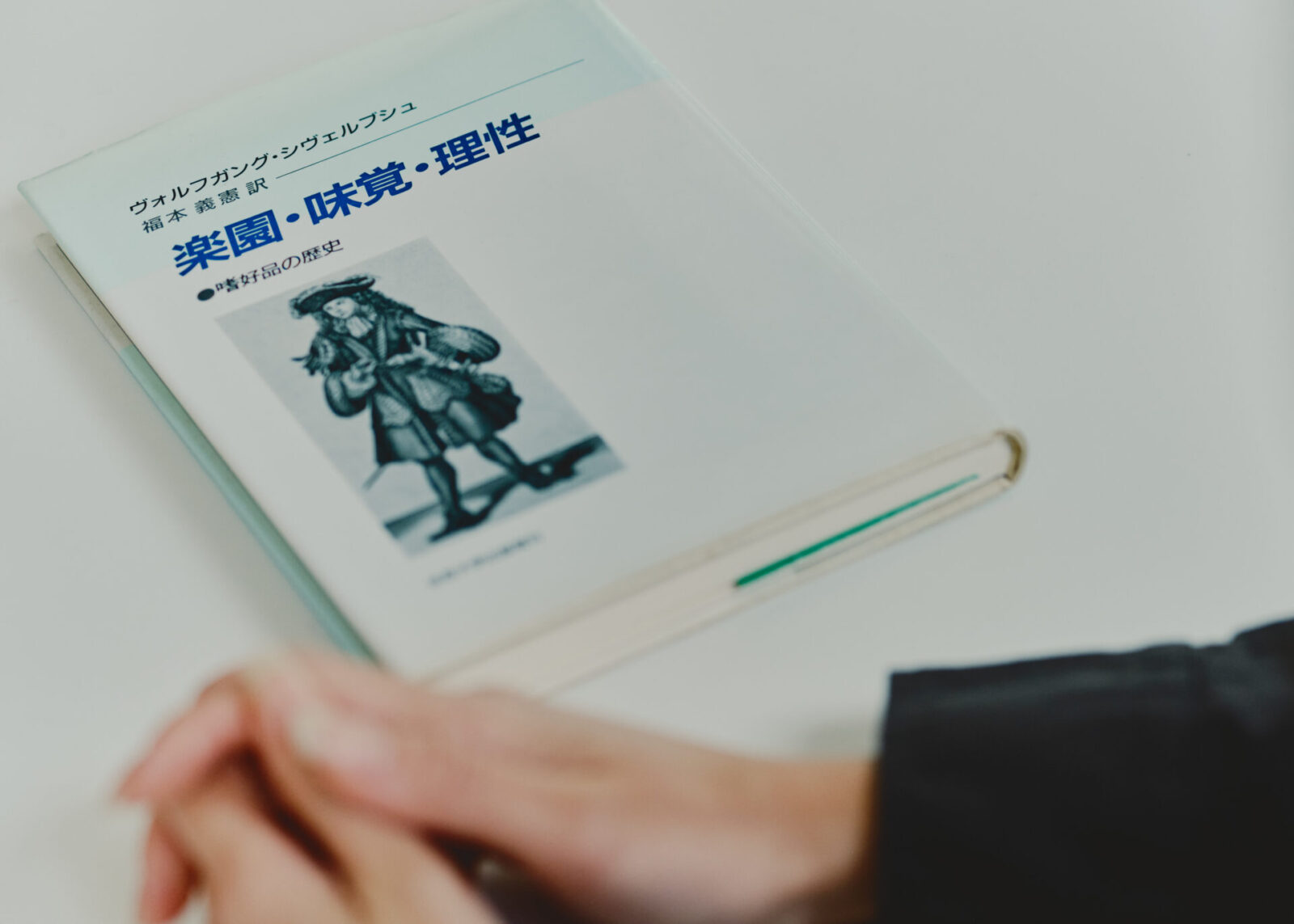
“The book talked about drinking as a ritual and why we do it. The act of drinking has a direct effect on the body. If you give someone poison to drink, they will die. Drinking has a faster and more direct effect on the body than eating. By sharing a drink in the same cup, we are confirming with each other that we are safe and can be trusted.”
Drinking in a community can build trust and relationships. In our modern day world, big drinking parties often play this role.
“However, saying ‘let’s drink together’ can also act as a forceful pressure. The discomfort I felt in the culture of drinking was from this pressure. I have been trying to see drinking, not as an outgoing, external ritual, but an inward ritual that ensures integrity.”
Reading this book helped Horie revisit her reasons and motivations to start making craft gin.
Bringing people together with ideologies and worldviews
Ever since her experience with gin at The Flying Circus, Horie has been driven forward by her strong admiration for gin.
She met Ryusuke Matosumoto, who is the developer for Holon and president of Kankak, Inc., by chance when he was working for Mercari and they have been working together on this craft gin product ever since.

When Horie left Google in 2019, she joined Kankak, Inc. Soon after that, however, the coronavirus pandemic hit and their circumstances changed suddenly.
Their craft gin project was temporarily put on hold and Horie was put in charge of the company’s cafe business. She was assigned to manage the business to meet the rising demand for food delivery as people were spending more time at home.
However, through it all Horie did not give up on her desire to create craft gin.
In order to gather funds to finish creating her original gin, she launched a crowdfunding campaign in December 2020 and collected 290 percent of her monetary goal. By March the following year, she began online sales on their gin.
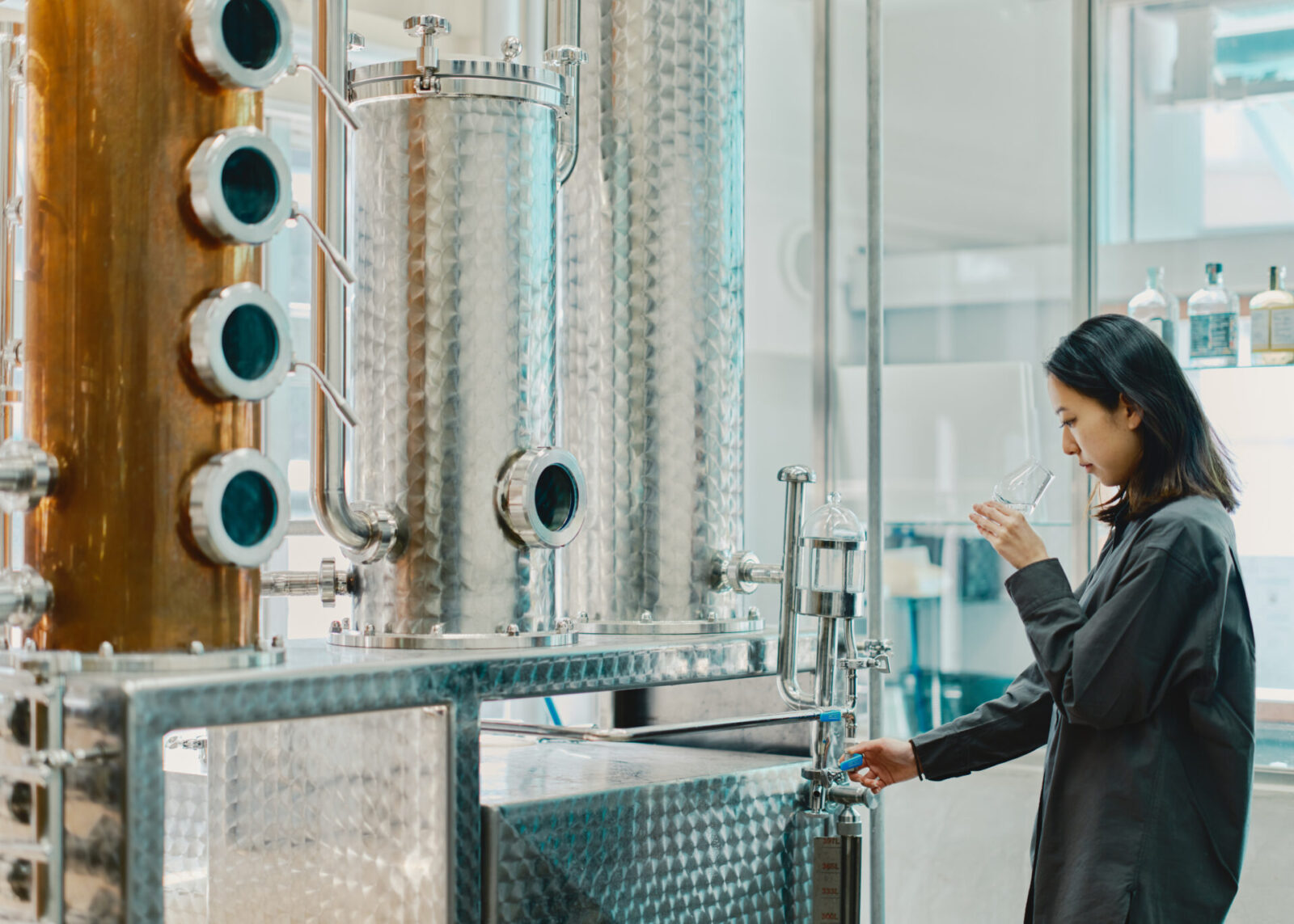
The members behind Holon are distiller Ayumu Yamaguchi, bar director Soran Nomura and other professionals that have gathered under the shared vision of creating a new way to drink alcohol.
Horie says that she gathered her team by “telling everyone around me what I wanted to do.” When we asked for advice on how to achieve such teamwork in such a short period of time, she answered:
“Rather than looking for people based on their skills, I looked for people who thought that the worldview that I was trying to express was interesting. When I looked for someone to be our social media manager, I looked at the tone and manners of their postings and messaged them directly. Whether you can share your worldview with a person is important.”
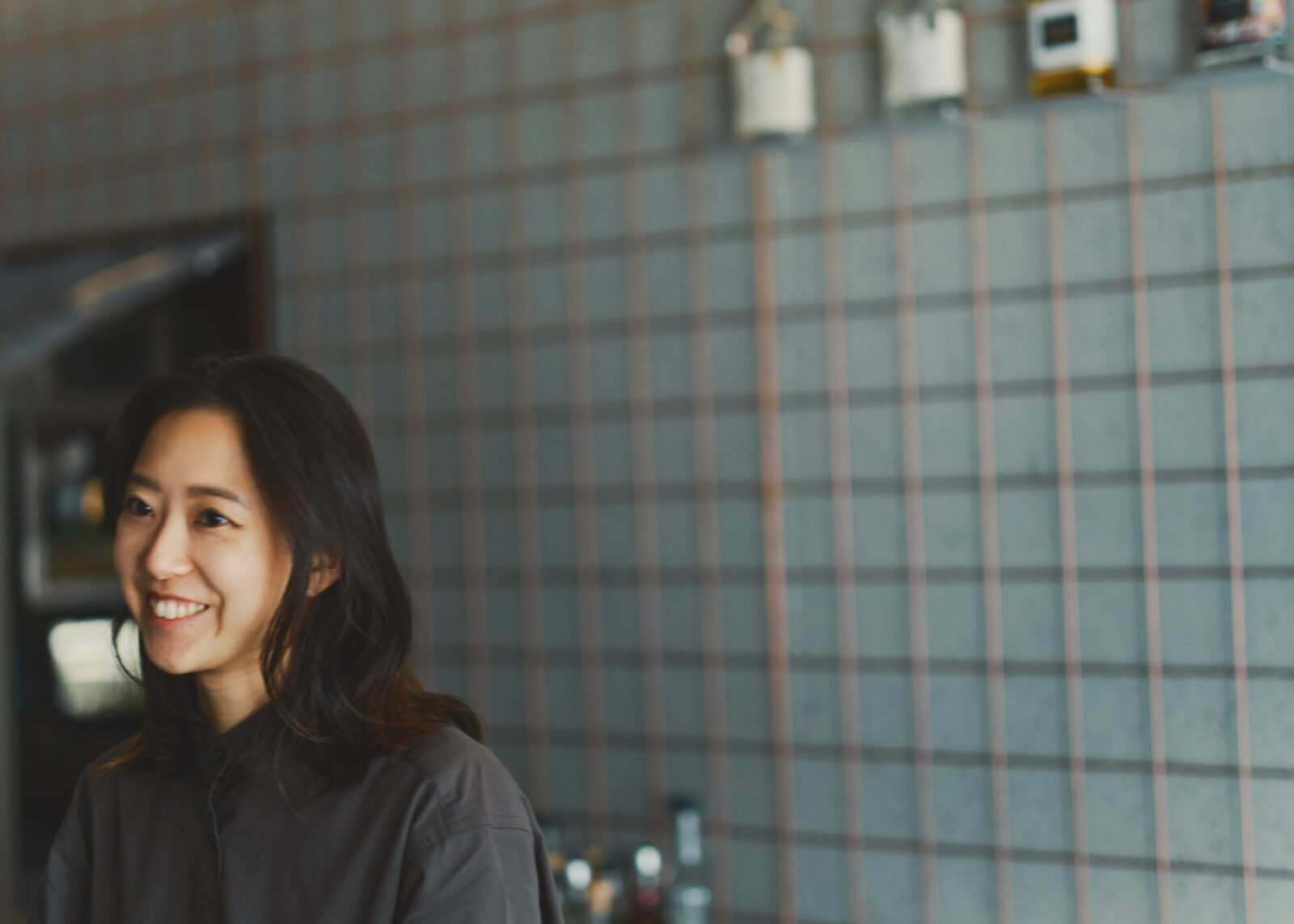
As a producer, Horie analyzes herself as well.
“I am the kind of person who has a tremendous and strong passion for things of relatively narrow scope. In fact, I don’t think I have the important skills that are needed for product development, creative work or marketing, but I really like to think about things and I am good at clearly expressing my vision in words. When I have a vision or a concept, I have no doubt in my mind that it is the one I want to pursue.”
Producing gin, creating positive cycles
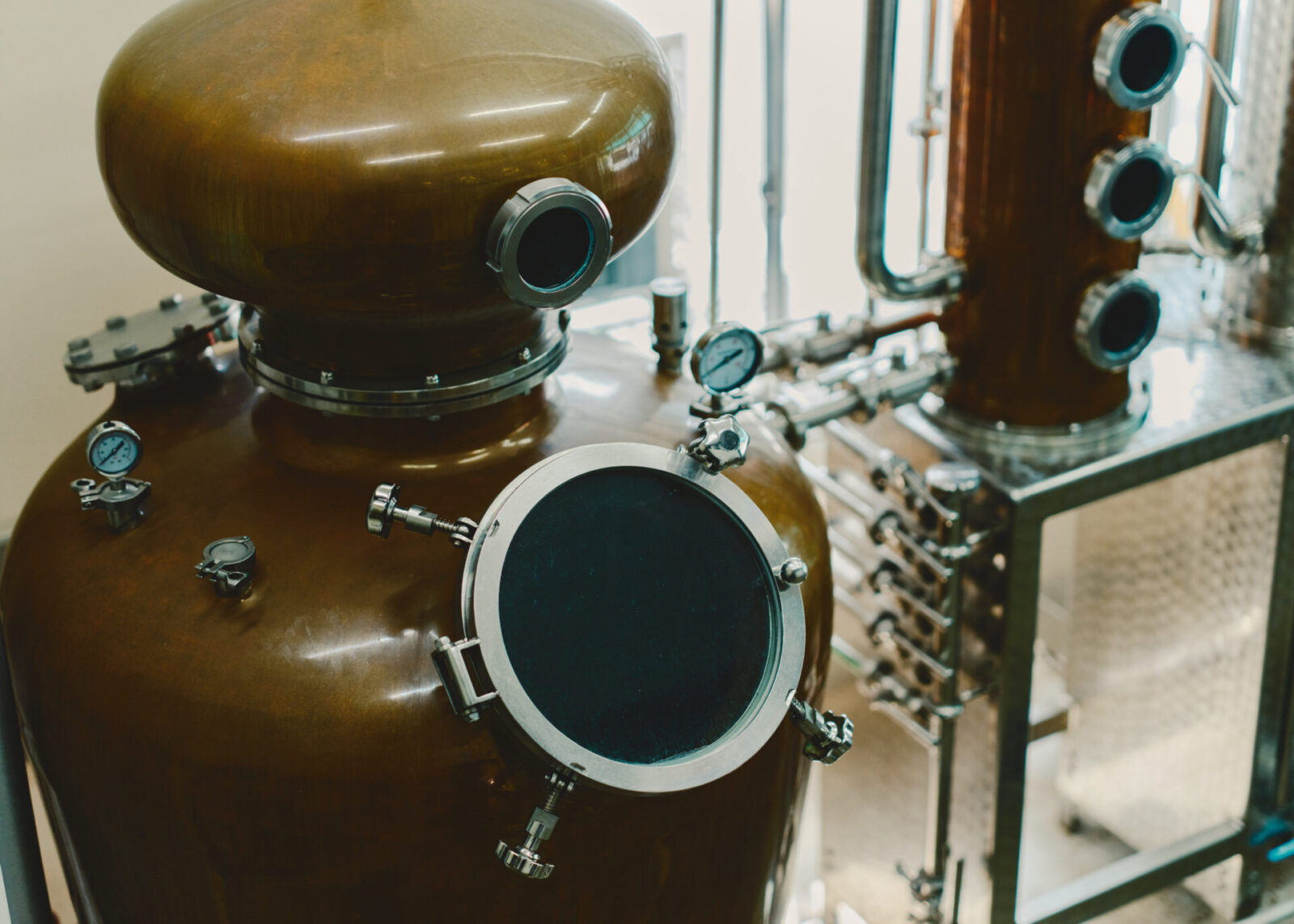
Holon means “harmony of the whole and its parts,” and one of their most important principles is to create a product that is environmentally friendly.
“The production of gin can make use of materials that would otherwise have been discarded. I personally think food waste is an awful thing. Gin can make use of the wood, leaves and flowers of tangerines, and the ingredients used for making gin can be reused to make bath salts. I find it very exciting to find various potentials for the materials and shine a light on them from all angles.”
“Reducing waste is not necessarily our number one priority, but it is the result that we are achieving naturally. I hope to create more positive cycles like these. How can we put the spotlight on things that did not have a use before? These are the questions that are always in my mind and I find it fun to think about it. I think that is another reason why I enjoy making craft gin.”
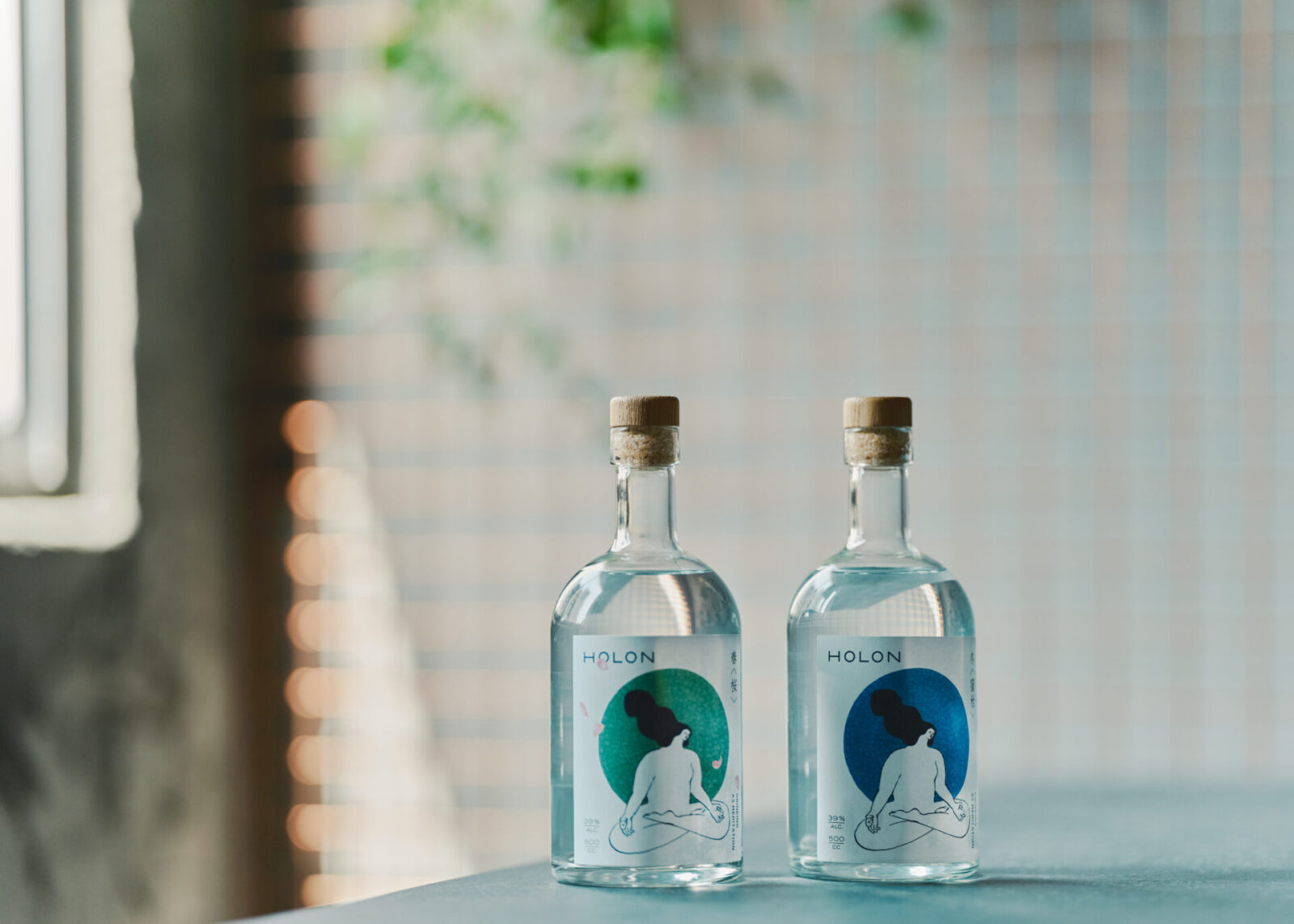
It seems that Holon is on its way to not only creating craft gin products, but creating a brand that mixes with the community, culture and economy to form a new kind of harmony.
With the ongoing coronavirus pandemic, it may be a turning point in our history to embrace alcoholic drinks that are made for self reflection.
We look forward to what kind of gin Holon will create in the future and how it will help us find moments of balance. Holon is updating the concepts of how we enjoy our drinking experiences and their innovations will continue.
Photo:Eichi Tano
Translation:Sophia Swanson
Born in 1990, Nagasaki. Freelance writer. Interviews and writes about book authors and other cultural figures. Recent hobby is to watch capybara videos on the Internet.
Editor. Born and raised in Kagoshima, the birthplace of Japanese tea. Worked for Impress, Inc. and Huffington Post Japan and has been involved in the launch and management of media after becoming independent. Does editing, writing, and content planning/production.
